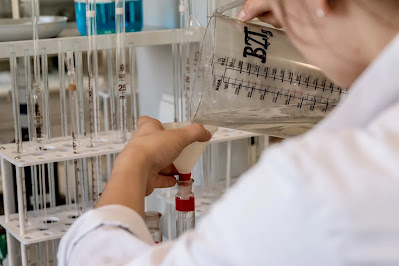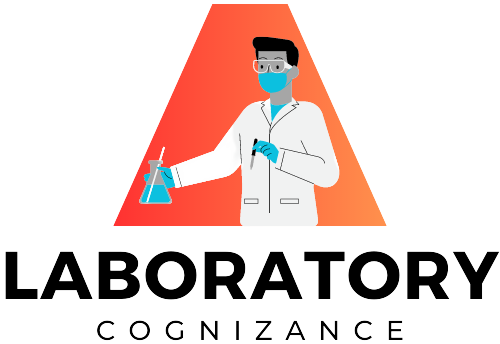Introduction:
Laboratory managers play a pivotal role in scientific research organizations, overseeing day-to-day operations, driving goal attainment, and cultivating a productive work environment. To excel in this position, laboratory managers must possess a diverse range of qualities and skills. In this comprehensive guide post, we will explore the key attributes that contribute to their effectiveness in leading and managing scientific laboratories.

Leadership: Guiding the Path to Success
A laboratory manager must demonstrate exceptional leadership skills, inspiring their team to achieve remarkable results. By creating a positive work environment that encourages collaboration, innovation, and productivity, they foster a sense of unity and shared purpose within the team. Through their actions and behaviours, laboratory managers serve as powerful examples, driving success at every level.

Effective Communication: The Backbone of Achievement
Superior communication skills are indispensable assets for laboratory managers. They must adeptly convey information to team members, stakeholders, clients, funders, and regulatory bodies. Clear and concise communication promotes understanding, minimizes errors, and strengthens relationships within and outside the laboratory. Effective communication serves as the foundation for successful collaborations and impactful scientific outcomes.

Laboratory managers should possess strong problem-solving abilities to navigate challenges effectively. They engage in critical and creative thinking to identify obstacles and develop robust solutions. By proactively addressing roadblocks, they ensure smooth laboratory operations and facilitate the progress of scientific research. Their problem-solving prowess drives continuous improvement and breakthrough discoveries.

Technical Expertise: Fueling Excellence
A solid understanding of the scientific research process is vital for laboratory managers. They must be well-versed in the specific research conducted within their lab, enabling them to provide guidance, support, and technical insights to team members. Their expertise fosters a culture of excellence and innovation, empowering researchers to push the boundaries of knowledge.

Organizational Skills: Mastering Efficiency
Effective time management and organizational skills are essential for laboratory managers. They skillfully prioritize tasks, handle multiple projects simultaneously, and meet deadlines with efficiency. These skills enable them to allocate resources effectively and ensure smooth operations within the laboratory. Through the meticulous organization, laboratory managers optimize productivity and maximize research outcomes.

Teamwork: Harnessing the Power of Collaboration
Collaboration and teamwork are at the core of any successful scientific laboratory. Laboratory managers actively foster a spirit of collaboration, encouraging open communication, knowledge sharing, and mutual support among team members. By creating a cohesive team, laboratory managers unlock the collective potential of their researchers, leading to groundbreaking discoveries and advancements.

Additional Considerations:
a. Setting Clear Goals and Expectations: Charting the Course
Laboratory managers must establish clear goals and expectations for their team members, ensuring a shared sense of purpose. By communicating objectives in a manner that is easily understood, they enable their teams to focus and work towards common goals. Clear direction sets the stage for meaningful progress and achievement.

b. Providing Regular Feedback: Nurturing Growth
Regular feedback is a catalyst for the growth and development of team members. Laboratory managers should provide constructive and positive feedback to guide and enhance individual and collective performance. This feedback fosters a culture of continuous improvement, strengthening the overall capabilities of the team and driving impactful outcomes.
![]()
c. Recognizing and Rewarding Achievement: Fueling Motivation
Recognizing and rewarding individual and team achievements is a powerful motivator. Laboratory managers should acknowledge exceptional performance and celebrate milestones. This recognition cultivates a culture of excellence, encourages innovation, and boosts morale within the laboratory. By fueling motivation, laboratory managers inspire their teams to reach greater heights.

Conclusion:
Laboratory managers serve as the linchpin of success in scientific research organizations. Through their strong leadership, effective communication, problem-solving prowess, technical expertise, organizational skills, and teamwork abilities, they guide and inspire their teams towards greatness. Additionally, by setting clear goals, providing regular feedback, and recognizing achievements, laboratory managers create a thriving work environment that fosters growth, collaboration, and unparalleled success within the laboratory.

FAQs:
What is the role of a laboratory manager?
A: A laboratory manager oversees daily operations, ensures goal attainment, and cultivates a productive work environment in scientific research organizations.
Why is effective communication important for laboratory managers?
A: Effective communication promotes understanding, minimizes errors, and strengthens relationships within and outside the laboratory, enabling seamless collaboration and impactful outcomes.
What skills are essential for laboratory managers?
A: Laboratory managers should possess leadership, problem-solving, technical expertise, and organizational, and teamwork skills to drive success in scientific research organizations.
How can laboratory managers foster collaboration among team members?
A: Laboratory managers can foster collaboration by encouraging open communication, knowledge sharing, and mutual support among team members, unlocking the collective potential of researchers and driving breakthrough discoveries.
Why is recognizing and rewarding achievement important for laboratory managers?
A: Recognizing and rewarding achievement fuels motivation, encourages innovation, and boosts morale within the laboratory, creating an environment that fosters excellence and drives success.

